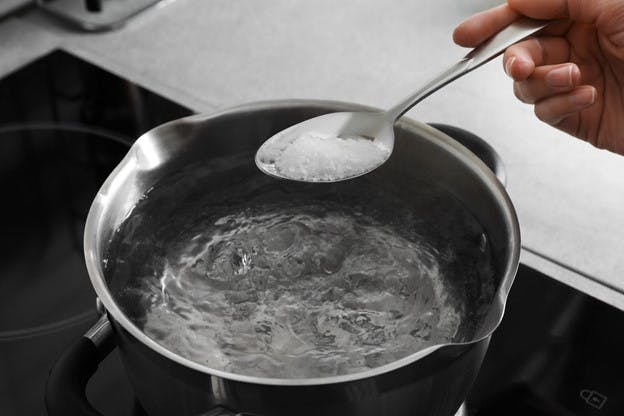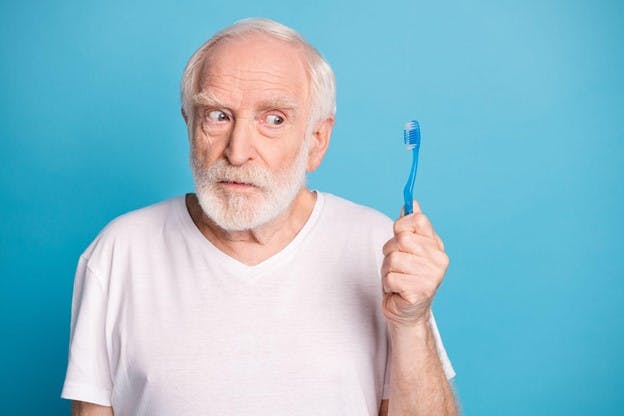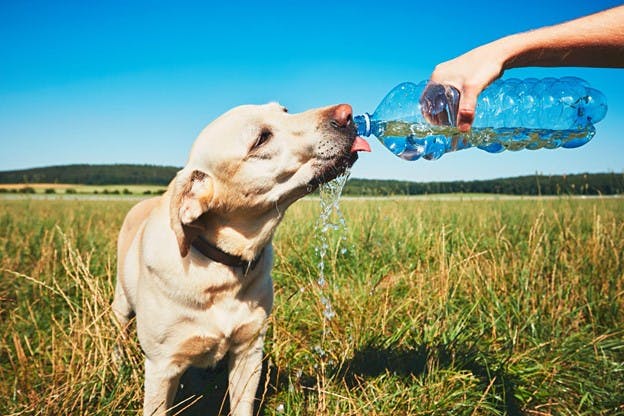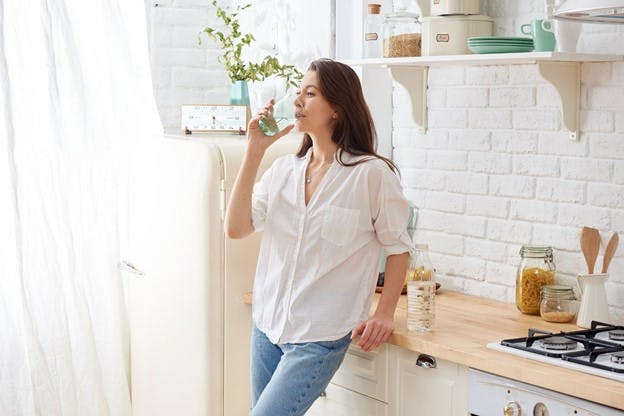February 2023
Boil Water Advisory: Don’t Panic! Here’s What to Do
Boiling water to make it safe to drink might be something you’d expect to do on a camping trip or a hiking adventure. It may even be a way to earn a wilderness badge as a scout. Most of us don’t imagine having to boil the water that comes out of our home faucet though.
Yet, when we look at hundreds of cities across North America, boil water advisories seem to be more commonplace than they used to be.
But what is a boil water advisory and why are they happening so frequently? In this article we want to look at why they happen, how you should deal with one, and whether or not water filtration systems — like the ones HomeWater offers — will protect you.
What Is a Boil Water Advisory?
When water quality drops to dangerous levels that can’t be immediately fixed by the water supplier, a boil water advisory is issued by the city health department. During this time it’s possible that the water coming into your home will have high levels of contaminants that could make you sick. If a boil water advisory is issued in your community, take it seriously. This is especially true if you have very young children or immunocompromised people in your home.
In the United States, there’s no universal system for getting the word out about a boil water advisory. Each municipality will have its own way of going about it. Commonly, if just a few people are affected, water suppliers might reach out with personal phone calls and door hangers. If it's widespread, there will often be some mix of robocalls, media reports, and social media/word of mouth used.
Why Do Boil Water Advisories Happen?
Boil water notices happen for many reasons, but here are some of the ones that occur most often:
- Flooding
- Storms
- Construction
- Water main breaks
- Power outages
- Contaminated source water
- Loss of water pressure
- Problems with water treatment
Boil water advisories happen any time your water service is negatively affected to the point of being a health risk. This can be from something as big as a natural disaster or as small as a loss of pressure in the water distribution system.
What Do You Do During a Boil Notice?
When you get a boil water notice, it’s telling you that the water coming into your home could make you sick, so don’t ignore it.
The first thing you should do when you get a boil water advisory is to read it thoroughly. While all we can do here is give you general information, the actual advisory may have more specific recommendations based on the reason for the notice. Always take that specific advice above all else.
Once you’ve read it there are a few steps you will usually want to take that we’ll go over now.
First, get rid of any water in your house that may be contaminated. If you’ve recently filled water pitchers, pet dishes, ice trays, etc. with potentially contaminated water, dump it. Better safe than sorry.
Next, make note of water-using devices in your home, like ice makers in your fridge, and be sure no one uses them. Unhook them if possible.
Finally, if you have home filters, you might want to put them into a bypass mode if they have one. This may sound counterintuitive but we’ll talk more about this later.
After you’ve gotten rid of the dangers in your home, the next thing is to try to source fresh water. If you have access to bottled water and bags of ice that’ll be best, since boiling water will only kill pathogens but it won’t remove heavy metals or other contaminants from the water.
If you don’t have access to bottled water, boiling water will be your next step.
Most boil water notices only last a day or two so there’s no need to go overboard. But having a few gallons of treated water readily available will be helpful.
How Do You Sanitize Water During a Boil Water Advisory?
To prepare water for use during a boil water advisory, bring it to a rolling boil for three minutes. This is especially important if you’re at an altitude above 6,500 feet.
Once boiled, allow the water to fully cool before transferring it to other containers, especially a plastic container. Boiled water can taste a little flat so if you’re drinking it, a small pinch of salt to a gallon of water can bring some life back to it.
What if I Can’t Boil My Drinking Water?
If you can’t boil your water but it’s running clear from your tap, other ways of sanitizing your water can be to use a small amount of unscented bleach.
Place one gallon of water in a sanitized container and add 1/8 teaspoon (about eight drops) of unscented bleach to the water. Mix well and let sit uncovered for 30 minutes before drinking.
Store sanitized water in a clean, sealed container for later use.
If it’s not running clear, filter the water through a cloth until it is and then follow the steps above.
Be sure to sanitize the container you store the water in, only use bleach in a well-ventilated area, and never mix bleach and ammonia cleaners.
Do You Still Have to Boil Water if You Have a Home Filtration System?
The short answer is yes. You still need to boil water even if you have a water filter in your home.
We understand that the reason you buy a water filtration system is to protect yourself from contaminants, however, home filters are designed and calibrated with certain parameters in mind. They’re not meant to protect your family from unknown contaminants in unknown amounts.
It could be dangerous to assume you’re protected by your water filter, and no responsible home water filtration company should claim otherwise.
Should You Use Your Water Filtration System During a Boil Water Advisory?
Ideally, for the health of your filtration system, the answer is no. If your system has a built-in way to bypass it, you should use it. If water is too full of contaminants, they can pollute your filters, making them dangerous to use after the boil water notice is lifted.
If you’ve been using your water filtration system during the boil water notice, you should strongly consider replacing your filters after the advisory is lifted and flushing out your system before using it again.
That said, water filters will help you filter out more of what’s coming through your pipes during the boil water notice. While this doesn’t make the water safe to drink without boiling, it will remove some of the sediment, heavy metals, and other impurities, which could help your boiled drinking water to be higher quality.
When deciding how to manage your water filter, take into account that too much sediment could damage your system.
Also, make sure you flush your pipes for at least five minutes before you install replacement filters. If you have questions about how to stay safe while using HomeWater filters, check out your owners’ manual. If you still need help, don’t hesitate to contact us with your questions.
Can I Brush My Teeth During a Boil Advisory?
Oral hygiene is important but brushing your teeth with contaminated water can be dangerous. Make sure when brushing teeth you only use bottled water or water you’ve disinfected for drinking and cooking purposes.
Can I Wash Dishes in a Boil Water Advisory?
Whenever possible you should use disposable plates, cups, bowls, and flatware during a boil water notice.
If that's not possible, home dishwashers that reach temperatures of at least 150 degrees fahrenheit or 66 degrees celsius are safe to use. If your dishwasher has a “sanitize” setting, use that.
If you’re hand washing dishes, use hot water to wash and rinse them. Once rinsed, fill a separate basin with a mixture of hot water and unscented bleach and soak the dishes for at least one minute. Use a ratio of one teaspoon of unscented bleach per gallon of water.
Allow your dishes to fully dry before using them.
How Can I Prepare Food During a Boil Water Notice?
Using contaminated water during food preparation can be dangerous, especially food that’s not cooked at high temperatures.
If you’re rinsing fruits and vegetables, rinsing utensils between use, or using water in any other way that will come in contact with food, make sure you use bottled or disinfected water.
Can I Cook During a Water Boil Advisory?
If your cooking method involves boiling for longer than three minutes, you can use tap water — although bottled water is still better. Any other food that touches contaminated water and isn’t then heated properly could cause illness. With that in mind, it’s best to use bottled or sanitized water for all other means of cooking.
Can I Shower During a Boil Water Advisory?
For adults and children who have healthy immune systems and who are able to fully understand the situation, showering should be fine. Be careful to keep water out of your mouth. Baths are not recommended.
If you have babies or small children, consider sponge baths to ensure they don’t swallow any water. Those who are immunocompromised may want to avoid all contact with the contaminated water.
What About Hand Washing During a Boil Notice?
If you are just washing your hands for hygiene purposes, it should be safe to wash them using tap water and soap. Just make sure to dry them well.
If you’re washing your hands to prepare food, it's best to use sterilized water.
Can Dogs Drink the Water During a Boil Order?
While it may seem like some dogs can eat anything and be OK, dogs should not drink the polluted water either. Keep your pets healthy and happy by taking the same precautions with them that you would for yourself. This includes only giving them sanitized or bottled water and properly sanitizing their food and water dishes.
Also, if you have a dog that attacks the sprinklers or drinks from a leaky spigot somewhere, be sure to remove their access to those sources until the advisory passes and you’ve flushed your water line of harmful bacteria.
Can You Do Laundry During a Boil Order?
It should be safe to wash your clothes in a boil water advisory. However, you should be aware that rust or other sediment could stain or damage your threads.
Can I Water My Houseplants and Garden During a Boil Water Notice?
It’s safe to water your plants, garden, and lawn during a boil water advisory. Just make sure no pets in the area use it as an opportunity for refreshment.
Can I Clean Surfaces During a Boil Water Advisory?
No one wants a dirty house, but using contaminated water to clean your surfaces may make things worse. Make sure you use bottled or disinfected water on all surfaces and items.
How Long Does a Boil Order Usually Last?
Usually boil water advisories are short-term occurrences that are lifted whenever the problem is sorted out. These public water system issues are normally solved in a day or two. In rare cases they can go on longer.
What Do You Do After a Boil Water Advisory Is Lifted?
Rejoice! You have an abundant supply of safe water again. Now go flush your water lines.
When your water supply is no longer a public health hazard, it’s time to make sure your home is safe from any remnants by cleaning the affected areas.
This mostly means flushing your water lines with cold water for five minutes. Flush your lines by turning on one faucet at a time until they are all on, and then run them for five minutes.
If your house has multiple stories, turn on the taps on the lower floor first and then move to the top floor. Once everything has run for five minutes, turn off the taps on the top floors first and work your way back down.
If you have water filters that you need to change, flush your system before you install the new filters to avoid contamination.
Remember to include water lines in your refrigerator or ice maker. Discard any ice that was made during the advisory and then throw away the next three batches as a precautionary measure. You should also clean the basin that stores the ice with water and unscented bleach.
What Happens if You Drink Water During a Boil Order?
Boil water advisories are issued when there’s an elevated risk of illness from consuming the water. While it's never advisable to drink the water during one of these periods, if you accidentally do, don’t panic.
If in doubt, contact a medical professional. If you experience cramps, vomiting, diarrhea, fever, or other signs of illness, seek care as soon as possible and bring a sample of the water with you just in case it’s relevant.
Staying Safe During a Boil Water Advisory
While boil water advisories are becoming more common, knowing how to manage them can help you and your family stay safe when they happen.
Because the level of contamination isn’t always known during these events, you shouldn’t rely on home filtration systems when they arise. However, HomeWater filters shine when it comes to giving you the highest-quality water day to day.
Using our reverse osmosis on ultraviolet light filters will give you clean, great-tasting water you’ll keep going back for.



